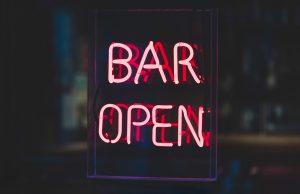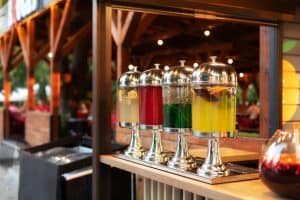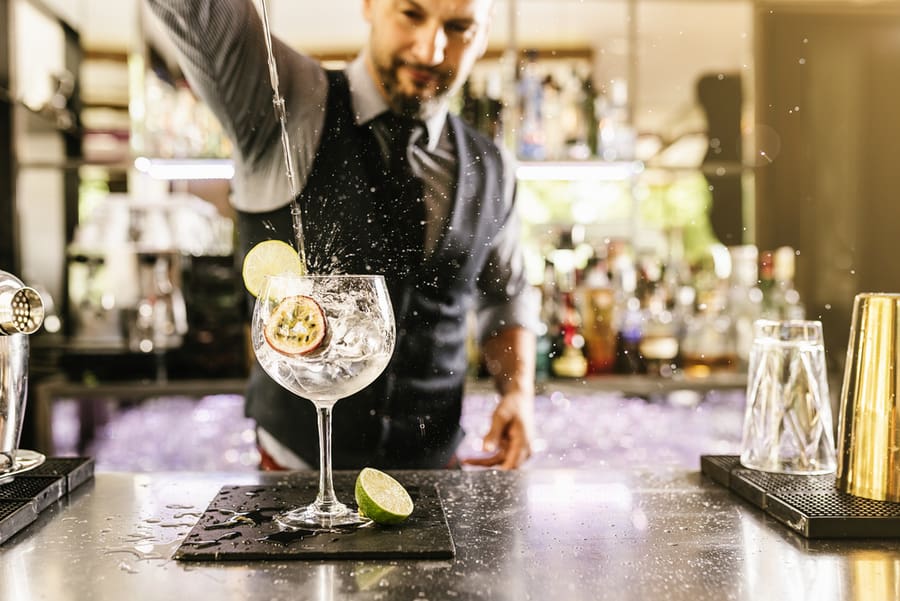
If you are invited to a party, and it states that there will be free alcohol, you will undoubtedly go, right?
Many individuals like drinking alcohol at parties or activities. Some drink to have fun, while others drink to unwind.
Whatever the reason, the correct amount of alcohol loosens you up from your normal rigid lifestyle. It takes you away from your tensions for at least a short while.
What does it mean if the event has an open bar?
An open bar is when the host pays for all the drinks, and guests may order whatever they please without having to pay. An open bar is paid for in advance by the host to ensure their guests can enjoy themselves and the event.
The host, in coordination with the catering company, bar, or restaurant, will discuss the options before hosting the event to ensure that the alcohol and non-alcoholic needs of the guests are met.
We’ll investigate what an open bar is, the down- and upsides of what it means for you as the host, and offer some etiquette basics if you are attending an event with an open bar. We’ll also look at two alternatives to an open bar, namely a hosted bar and a cash bar so that you can make an informed decision when you’re hosting an event.
The Open Bar
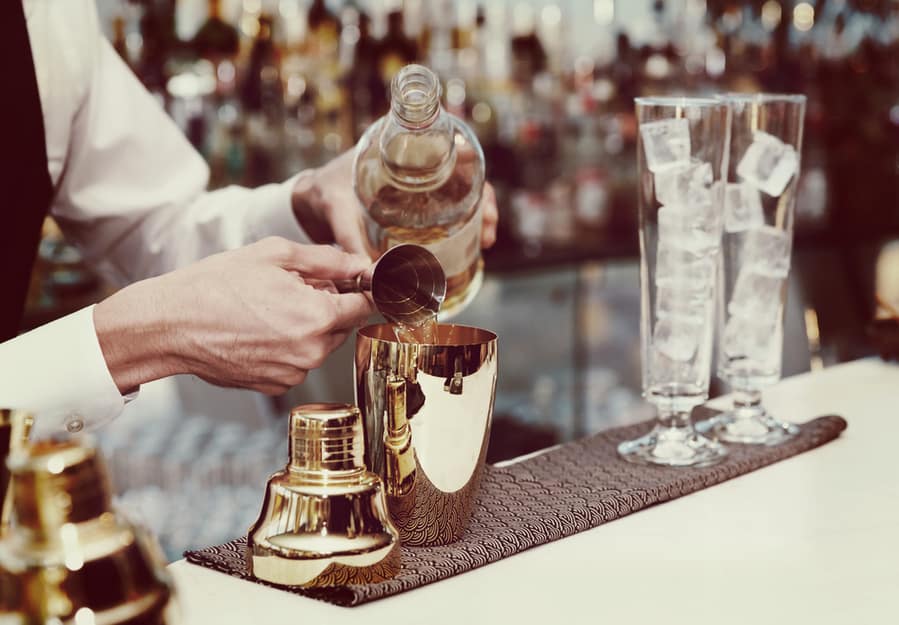
The simplest definition of an open bar is a bar where the drinks are provided free of charge at the function. This is an excellent option if you’re hosting a large event such as a conference, a family reunion, or a wedding reception.
Usually, an open bar’s stock can be agreed upon beforehand between the host and the catering company or restaurant to curb the costs of expensive bottles of liquor for both.
Other times, the catering company or restaurant may specify the available drinks served during the open bar. Some non-alcoholic options may also be offered to cater to everyone’s tastes.
Hosting an open bar at your next event does come with its own set of negative and positive factors, which we’ll consider next.
Suppose you are worried about the cost of hosting an open bar, you can opt for an open wine bar with various types of wines you’ve selected beforehand, or you can even host an open beer bar that will only serve beer.
In both cases, you can still have guests pay for other drinks they prefer, and this is sometimes called a limited open bar.
Downsides of an Open Bar
- You might waste your budget if you have a small gathering or groups that do not drink a lot.
- In some states, you and the bartender are liable for guests’ behavior once they leave the party. This can have substantial legal impacts if they cause an accident or get arrested for drunken driving.
- It can be expensive to treat your guests because you are paying for everyone else’s drinks during the event.
- Guests tend to abandon their drinks and go for a new one because they aren’t paying for the drinks, and there might be half-finished drinks left everywhere, adding to your expense account.
- Guests can become rowdy or nagging once they get their next drink, which may cause trouble for you with your other guests and the bartender.
We’ll look at some alternatives to an open bar later on.
Benefits of an Open Bar
- An open bar is an elegant way to treat your visitors and is usually required at high-level corporate events and wedding receptions.
- It reduces waiting time and hordes of people at the bar because you’ve negated the need to process transactions there.
- It is a beautiful way to showcase a custom cocktail you’ve created for the event. You can pre-select the drinks with the beverage manager or bartender to keep them within your budget.
- You won’t get a massive bill at the night’s end because everything has been settled in advance.
Open Bar Etiquette
As lovely as an open bar is, there are some rules that you should follow to make it enjoyable for everyone and especially your hosts.
- Be mature enough to know your limit and stick to it—you don’t want to be remembered as that guest. Yes, it’s an open bar, and you’re not paying for the drinks, but that doesn’t mean you can go overboard.
- Basic manners and self-control are expected—this includes behaving in a civilized manner and not making a nuisance of yourself to the bartender, guests, or hosts.
- Don’t center around the bar—it is not the main attraction.
- As a courtesy to your bartender, tip them as you would for a full-priced drink unless your host indicates otherwise.
- Don’t order the most expensive drinks you can find on the menu.
- In most states, a bartender may refuse service if you are too drunk, and you’ll become a liability to both them and the host.
- Remember why you are attending the event—your host graciously invited you, and booze should not be your primary focus.
Apart from an open bar, you can also have a hosted or cash bar at your next event. We’ll look at those options next.
Alternatives to an Open Bar
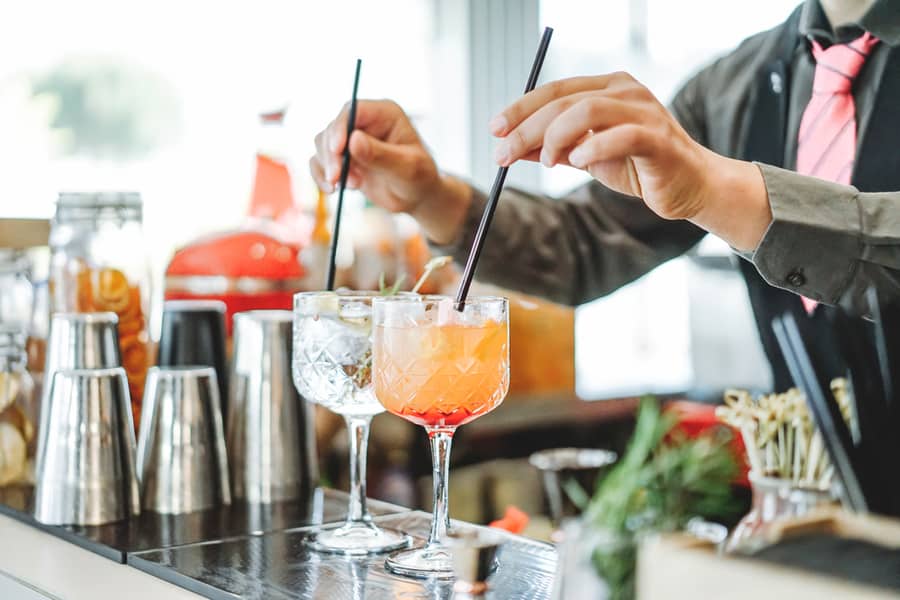
If an open bar seems too much for you, you can try two alternatives: a hosted bar and a cash bar. Both options still have their own pros and cons, which we will examine below.
Hosted Bar
A hosted bar can also be expensive because you’re stuck with the final bill at the end of the event.
A hosted bar will measure the amount of alcohol before and after serving drinks to your guests and calculate the amount of alcohol served—this takes the guesswork out of the event but may turn into a costly event!
There’s less waste than with an open bar, and you only pay for the alcohol your guests consume. A hosted bar also eliminates lines because there are no transactions between the bar staff and patrons.
Remember, there’s no limit, so guests can consume as much alcohol as they like, and you get the bill. Just like an open bar, guests can still over-indulge and become a nuisance to you and other guests.
Over-indulging guests can rob you and your guests of your experience and take away from the tone of your event.
As with an open bar, you have to be selective with the guests you invite to your event to ensure that they will at least behave themselves.
When you start selecting guests, you risk causing animosity among family and friends because certain people are not attending the event. Quite the balancing act!
Cash Bar
A cash bar is your best option if you have a small or limited budget.
A cash bar is like a commercial bar where patrons pay for their drinks. It will also save you a lot of money if you have a limited budget by shifting the responsibility of buying drinks to the guests.
You may consider purchasing the first round of drinks by giving each guest a free drink ticket they can redeem at the bar for a beverage of their choice—this is kind of a hybrid-hosted bar. You’ll still end up with a bill at the end of the night.
Guests will undoubtedly drink less when they have to pay for their drinks—but this comes with a caveat—guests may feel that you’re not a ‘good’ host because you’ve invited them to your event, and now they have to pay for their own drinks.
Explicitly state on your invitations that there will be a cash bar and remind guests to bring cash or cards for the bar.
Some guests may come to your event and expect an open or hosted bar and may enter the event with a negative mindset.
Conclusion
There you have it; an open bar is when you’re invited to an event, and your host has graciously paid in advance for all the drinks. You can order any drink you like and don’t have to worry about paying for them.
As a host, you should keep in mind that some guests drink more than others, and the liability will fall on you when guests leave your party inebriated.
Make sure that you have a contingency plan in place to either host or get guests home safely.




